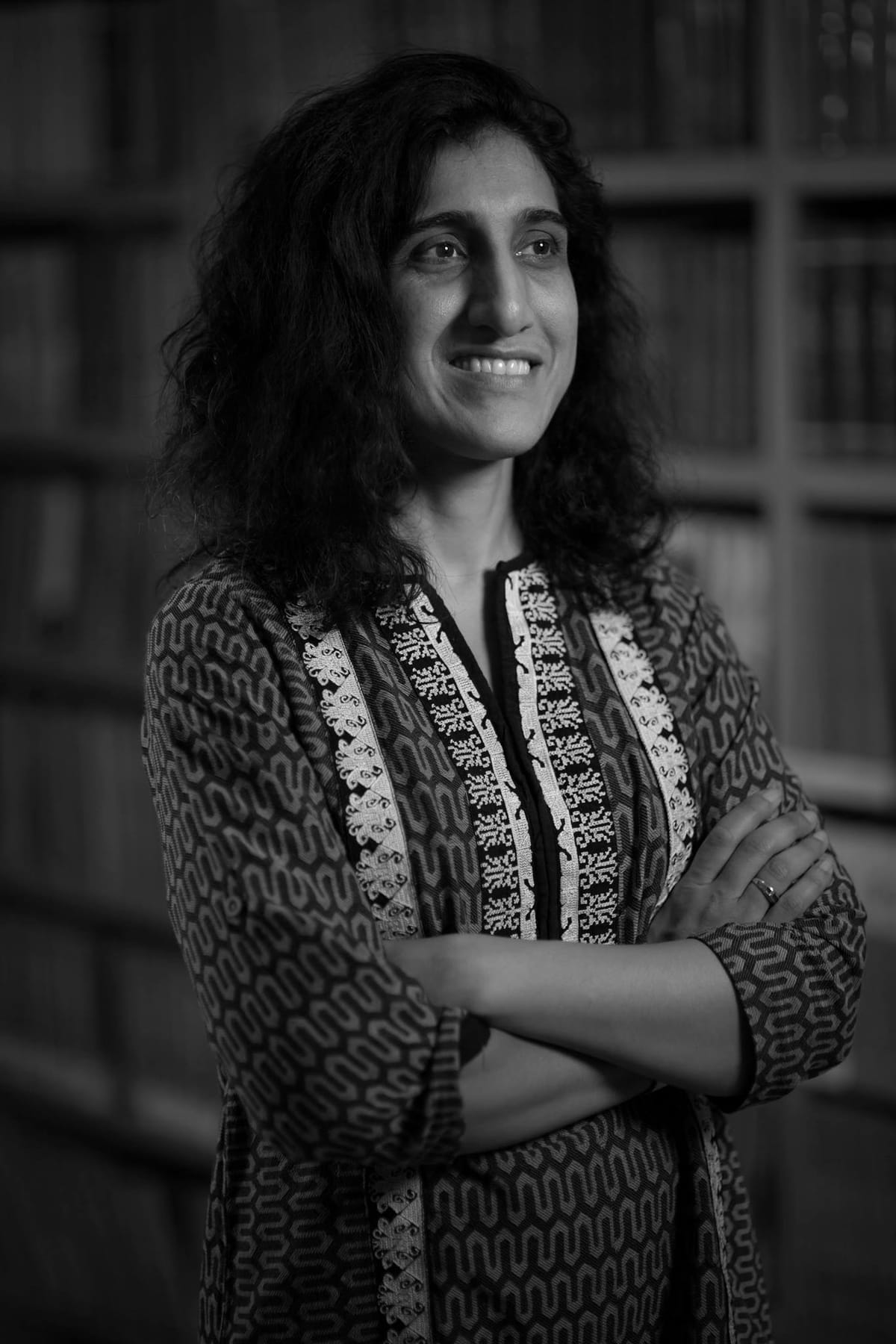Decolonising Knowledge, Decolonising Education: In conversation with Amina Yaqin, Director of the SOAS Festival of Ideas

By Maliha Shoaib, BA English and World Philosophies
The SOAS Festival of Ideas featured a series of panels and events from 19-24 October, including a speech from Maliha Shoaib of The SOAS Spirit at the Opening Programme. (Credit: SOAS Festival of Ideas)
Tell me a bit about the theme this year for the SOAS Festival of Ideas.
The SOAS Festival of Ideas came out of a research environment connected to impact and knowledge exchange. When I was asked to contribute, I thought we needed an overarching theme that helps bring together the kinds of research we’re conducting at SOAS in a way that’s responding to some of the urgent questions facing us, both in the Higher Education [HE] sector, and the broader culture and society.
I settled on the theme of decolonising knowledge. The Festival is inspired by Achille Mbembe’s lecture series on decolonising the university, and also my involvement with the Decolonising Working Group. It’s in conversation with students, and it’s about amplifying student voices and thinking about structural change within the institution.
This theme of decolonising was something that was going around a number of departments, but it’s also not uniformly accepted and structurally present in all the things we do at SOAS. We have a history as a colonial institution, so decolonising knowledge is an opportunity for us to reflect and think back on that history of hierarchies, and also think forward to the future. I don’t think we’ve had an opportunity to have those difficult but necessary conversations.
The university as an institution has often upheld these hierarchies – who can access education and who can access a ‘successful’ life. Do you think Higher Education can be decolonised if it is inherently rooted in this system?
It’s a difficult question, because there are so many structural things involved in the decolonising process. And we’re doing this from research funding, which also has attachments to processes of colonialism and how we disseminate knowledge, particularly in terms of how the state gets involved with the delivery of Higher Education. I think for young people it’s a very tough climate right now, because it is about exclusion. It’s a movement of education towards privilege, so that greater access is provided for those who have more availability of funds.
Paulo Freire talks about how education has become a bankable system where you just produce knowledge as a commodity and add it to your CV to sell yourself as the next market value product. But education is, philosophically speaking, about something much more. It’s not a bankable process, when education works successfully in terms of the exchange of ideas and knowledge production and growth.
I know Achille Mbembe talks about his vision for education and the free pursuit of knowledge. What steps are SOAS taking to decolonise?
I think SOAS is in a very difficult place. It’s in a financially challenging place, and therefore it has to make all those decisions based on capital. Where it is true that we are an industry leader in decolonising externally, and we’re doing a lot of exciting research, what’s happening in our classrooms? Are students really getting the benefits of a decolonised education? What does a decolonised education actually look like at SOAS?
We have a decolonising teaching toolkit which emphasises inclusivity and discussion. But I don’t think decolonisation is an easy process. It’s about financial structures and transparency. It’s also about establishing the norms of a Eurocentric canon – how are we reproducing canon formation in the way that we teach, and do we really value scholars from the Global South as much as canonical figures?
What sort of place does a decolonised education have once we leave the SOAS bubble and go out into a world where the structure and content of our courses are completely different from everyone else’s?
When you go out into the ‘real world’ or you want to go to a different institution to do your Masters or PhD, there’s a gap in knowledge. And that’s why it’s a much bigger project [than one at classroom level] – why is it that we continue to reinforce a particular type of knowledge as the standard?
I think the conversations are beginning to happen across institutions as well – everyone’s talking about decolonising. But if the university ranking system in the UK is going to be based on a tiered system, in which certain universities are always the top two, and this ranking determines your access to jobs, networks, and opportunities, how are you going to change things?
So for that very reason we have to change the way education works, because it’s become too complacent, too comfortable, with those centralized positions for particular types of people. I think we need to change the way that the social and economic structure of society works – because the current model is collapsing around us.
Photo Caption: Amina Yaqin is an interdisciplinary researcher who works across literary studies, cultural studies, and postcolonial studies. Credit: Amina Yaqin.



